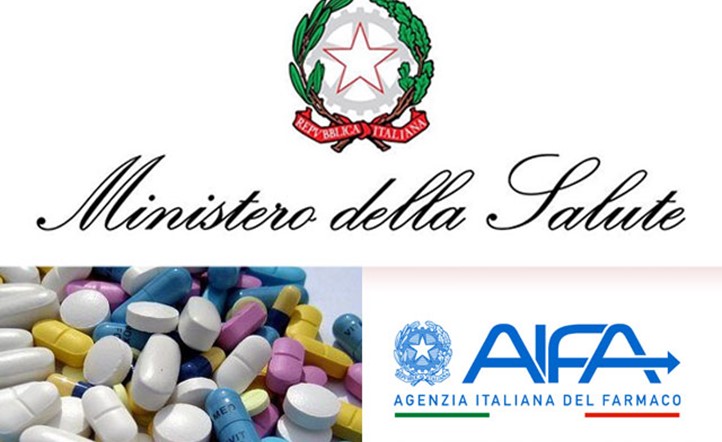Autorità nazionali / Area COVID-19
Near Unanimous Support for Pfizers Paxlovid for Mild to Moderate COVID 19

The Antimicrobial Drugs Advisory Committee (AMDAC) solidly agreed that the overall benefit-risk profile for Paxlovid (nirmatrelvir and ritonavir) co-packaged tablets, submitted by Pfizer Inc, is favorable for adults with mild-to-moderate coronavirus disease 19 (COVID-19) who are at high risk for progression to severe COVID-19. On the whole, panelists agreed with the FDA that the clinical trial data demonstrated that Paxlovid was effective and safe in this population. However, additional data would be needed to determine whether Paxlovid would be beneficial in other patient populations (e.g., immunocompromised individuals).
- Voting rationale: The 16 committee members who voted in favor of PAXLOVID approval cited the clinical trial data / RWE to support the efficacy of PAXLOVID and noted PAXLOVID’s importance as a treatment for a disease as dynamic as COVID. However, they agreed on the need to manage drug-to-drug interaction (DDI) risks and continue to monitor the effectiveness of PAXLOVID to ensure it maintains a favorable benefit/risk balance. The single patient representative who voted no expressed concerns that many HCPs are not adequately educated on the management and relevance of PAXLOVID's DDI and rebound challenges, respectively (see screenshot below for an additional summary of the voting results)
- Label Indication: If the NDA for PAXLOVID use in adults is approved, the FDA anticipates the current EUA for PAXLOVID will remain in effect for the continued use of treatment for adolescents with mild-moderate COVID-19 until Pfizer submits a separate, supplemental NDA with results from the EPIC-Peds study
- NDA Trial Data: The Advisory Committee concluded the EPIC-HR and EPIC-SR clinical trial results supported the efficacy of PAXLOVID for the treatment of mild-to-moderate COVID-19 in high-risk adults, regardless of COVID vaccination status or evidence of previous SARS-CoV-2 infection.
- The committee noted the lack of details and data on patients who were “vaccinated” in the Pfizer-sponsored studies and uncertainties on which patients are truly at “high-risk” for progression to severe disease post vaccines and with Omicron variants
- The committee noted the need for data on PAXLOVID use in immunocompromised patients (e.g., HIV patients, transplant recipients, patients receiving B-cell depleting therapies), but it was satisfied with Pfizer’s proposed plans to address these data gaps in the EPIC-IC trial that will readout around Q3 2023.
- DDI Safety: The Advisory Committee agreed that DDI-related serious adverse reactions are PAXLOVID’s key safety concern, and it implored Pfizer and the FDA to provide further education and develop accessible tools to help physicians manage these risks, especially for patients taking contraindicated therapies like calcium channel blockers
- Activity Against Omicron: The Advisory Committee concluded PAXLOVID is likely to retain activity against circulating and emerging variants based on the high conservation of the main protease (Mpro). The committee agreed that Pfizer has adequately studied PAXLOVID’s effect on variants via in-vitro, and acknowledged RWE demonstrating PAXLOVID is active against Omicron variants
- COVID-19 Rebound: The Advisory Committee agreed that evidence from ACTIV-2, EPIC-SR, and EPIC-HR studies suggests COVID-19 rebound is not associated with PAXLOVID treatment and is likely a part of the natural COVID-19 disease progression. The committee also discussed the need to rectify public perceptions of PAXLOVID and rebound to ensure patients who may benefit from the therapy receive it
CI Assessment
- Based on the AdComm discussions, PAXLOVID is expected to receive full NDA approval for the treatment of mild-to-moderate COVID-19 in adults who are at high risk for progression to severe COVID-19, including hospitalization or death, by the expected PDUFA date (May 2023). Pending approval, Pfizer will likely increase marketing and commercialization efforts in anticipation for its transition to a commercial distribution model; expected EOY 2023. Full approval of PAXLOVID could impact COVID-19 portfolio due to lower share of voice, increased spillover use in hospitalized settings (especially in patients who do not require supplemental oxygen).
- Pfizer is expected to direct of its post-approval efforts towards changing HCP and patient perceptions of PAXLOVID’s association with rebound.
- Lack of DDI risks continue to be a key point of differentiation since PAXLOVID is likely to have some form of warning on its approved label noting the potential DDI safety concerns; due to ritonavir labels like NORVIR have a Black Box Warning for potentially serious DDIs. However, the FDA is not expected to impose a REMS program for PAXLOVID DDI risks as it would be challenging to enforce
- The unmet need for immunocompromised patients with COVID-19 remains high and the Advisory Committee’s focus on them suggests regulators, guidelines, and other stakeholders will increasingly want data on use of antivirals in this population to ensure the therapies are effectively treating patients and optimally dosed to mitigate the risks of developing drug-resistance variants
- The Advisory Committee acknowledged the importance of RWE in understanding whether PAXLOVID remains effective in patients with vaccine-/infection-conferred immunity in the Omicron variant era. Regulators, guideline bodies, and other stakeholders may rely on RWE more to assess the effectiveness of COVID therapies as the COVID-19 landscape continues to evolve
To read more please see the attachment
Grazie per il tuo feedback!
